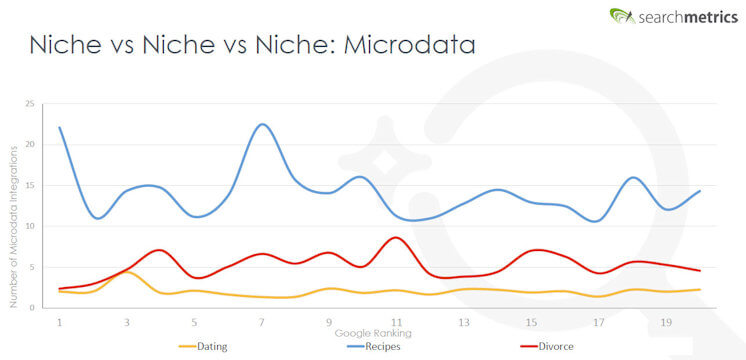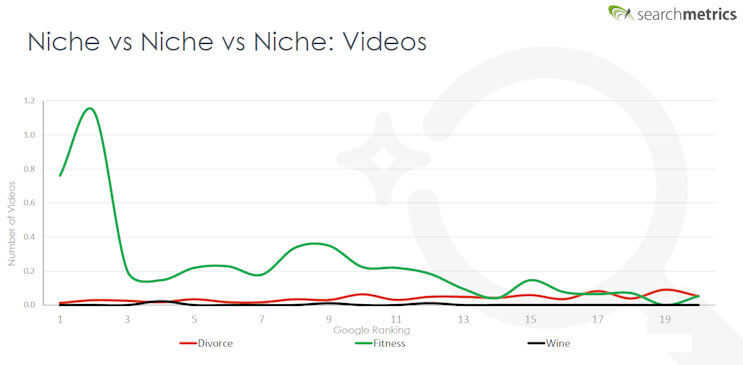Many SEOs have become wary of search ranking factor studies. Do they have any value?
In this episode of the popular Here’s Why digital marketing video series, Eric Enge explains why they do, IF you are willing to dig deeper and use good principles of data interpretation.
Don’t miss a single episode of Here’s Why. Click the subscribe button below to be notified via email each time a new video is published.
Resources
- Ranking Factors Session Recap from SMX 2018
- See all of our Here’s Why Videos | Subscribe to our YouTube Channel
Transcript
Mark: Eric, you covered the ranking factors session at SMX Advanced in 2018. Back in November you and I chatted about the basics of what the panelists shared. Today let’s dig deeper and get into the lessons we can learn from them.
Eric: As always, we had a great panel of people sharing from their own testing and experience what they’d observed about search rankings over the past year.
We started with Marcus Tober of SearchMetrics. Marcus took on what has become a really hot issue in SEO and that is correlation studies. These are studies that look for things that correlate highly with higher search engine rankings.
Those studies have come under some fire because well, as we know, correlation doesn’t necessarily mean causation. But some people always jump to conclusions from correlation studies that really aren’t always warranted.
Mark: What did Marcus Tober have to say about all that?
Eric: Marcus thought that there was value in looking closely at microdata usage for certain niches and comparing them to each other. For example, here are his results when comparing sites about dating, recipes, and divorce.

As you can see, there is no clear correlation between the number of microdata integrations and rankings in search, but it is clear that recipe sites use microdata much more than the others.
Mark: Probably because the value to them is clear. I mean, since Google often gives recipe pages special search features triggered by microdata.
Eric: Right, but now look at this graph for three niches and their use of videos. Here, we have two takeaways.

First, fitness sites use way more video than divorce or wine sites. And second, there appears to be a pretty strong correlation for fitness sites between the number of videos they use and getting a top position in search.
Mark: And that might make some sense since people seeking fitness information probably want to see videos about topics like how to do an exercise correctly.
Eric: Right. Marcus also looked at things like the number of paragraphs on a page and the amount of social signals the page had, again, comparing them across several niches. For the former, there was no ranking correlation while for the latter, social signals showed a high correlation, but only for a certain niche where social engagement was more likely than the other niches investigated.
Mark: What should be our takeaway from Marcus Tober’s data?
Eric: I think he did a great job of showing how correlation or even lack of correlation in and of itself doesn’t necessarily tell the whole story. Often, a deeper dive into the data will reveal other possible reasons that show the correlated factor may not necessarily be the reason for the higher ranking.
Related: Links as a Ranking Factor: Still Going Strong in 2019
Next up was Morty Oberstein from Rank Ranger. Morty chose to investigate the rate of change in search results over time. He looked at the top five search results for five niches since 2015.LOL
Within a year, only 27% of the results were the same sites in the same order. And by 2018, that had dropped to 10%.
Mark: A lot of volatility there.
Eric: Yes. He also showed several examples of niches where the change in search results over time seemed to be driven by Google shifting what it saw as the primary intent for a query. That results is what I call ranking slots.
For example, let’s say you have an eCommerce site where you’re able previously to get on the first page for your keyword. But at some point, Google decides that query is more informational than commercial in intent. So they now give four of the top 10 available ranking slots to informational pages. That means your eCommerce page is now competing for just one of six available positions instead of the 10 they were before.
Mark: And how about Jeff Preston from Disney? I think he was the last panelist.
Eric: He was. And Jeff concluded the session with a higher level view on how we interpret data.
He used two very powerful stories from the world of flight navigation technology. The first story was about the tragic Air France flight 447. Flight 447 plunged directly into the Atlantic Ocean because the pilots blindly trusted readings from a broken sensor, and that was not a good result obviously.
In contrast, Jeff told us about a Qantas flight where the cockpit suddenly erupted with 58 error messages and 100 alarms going off all at once. In that situation, the plane landed safely because the pilots ignored the obvious noise and trusted their training instead.
The takeaway for search marketers looking at data is that while data is a great thing, too much data can overwhelm you and give you false conclusions. Sometimes, you have to take a deep breath and lean back into your own testing and experience as well as your awareness of good case studies from other SEO sources you trust.
Don’t miss a single episode of Here’s Why. Click the subscribe button below to be notified via email each time a new video is published.
See all of our Here’s Why Videos | Subscribe to our YouTube Channel


Hi team. Another great post so early in the new year 🙂 You guys discussed a topic that resonates with me a lot. I’m known to get data analysis paralysis, it can get super overwhelming.
This is why a good core understanding of SEO is important, it will help you connect the dots the data creates a lot easier, and it can also prevent you from making the wrong conclusions.
Not sure if what I’m saying makes sense, does in my mind though LOL.
All the best for the new year!
Gonna be keeping a closer eye on you guys in 2019.
I love this video. Great work guys.